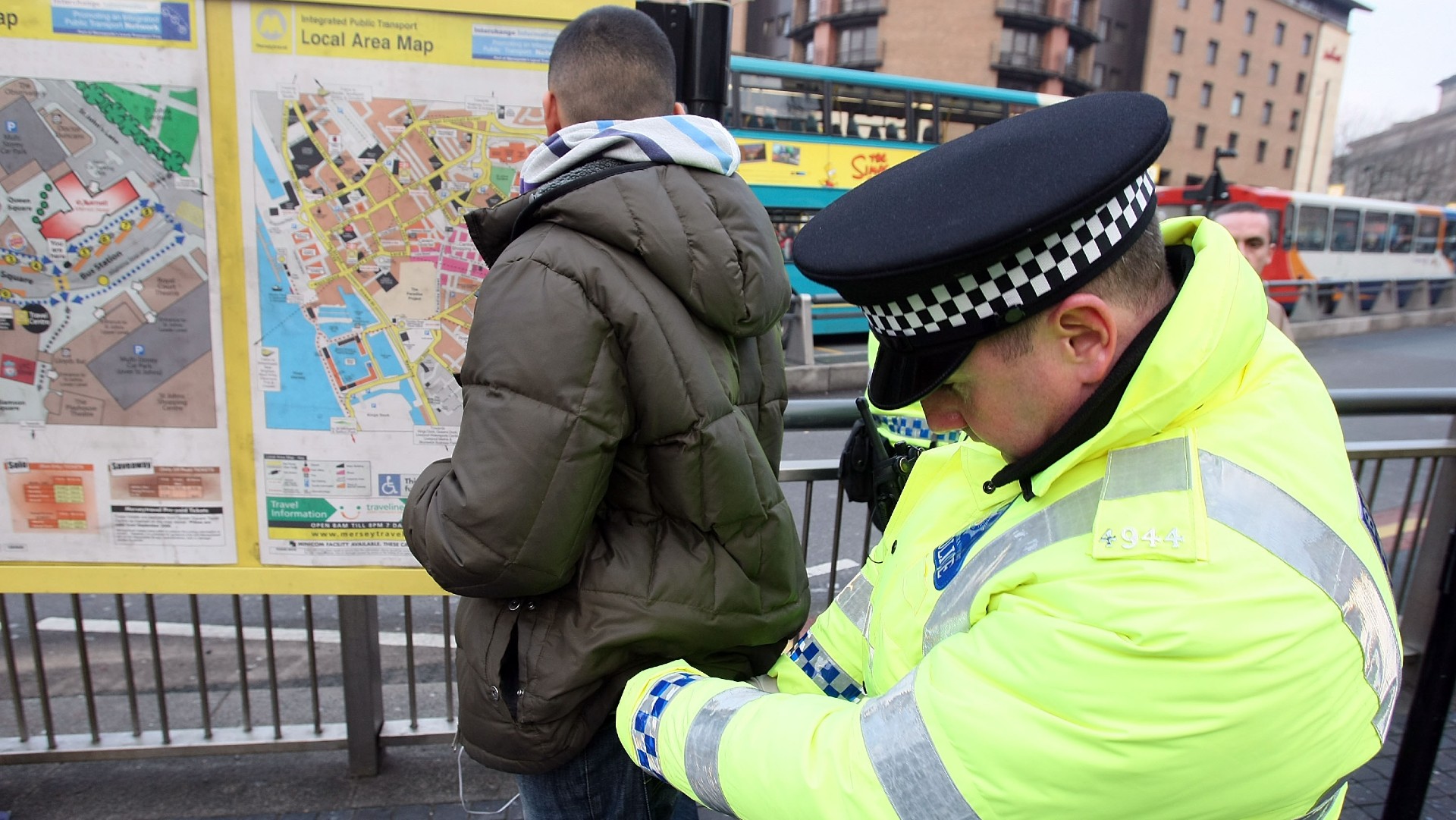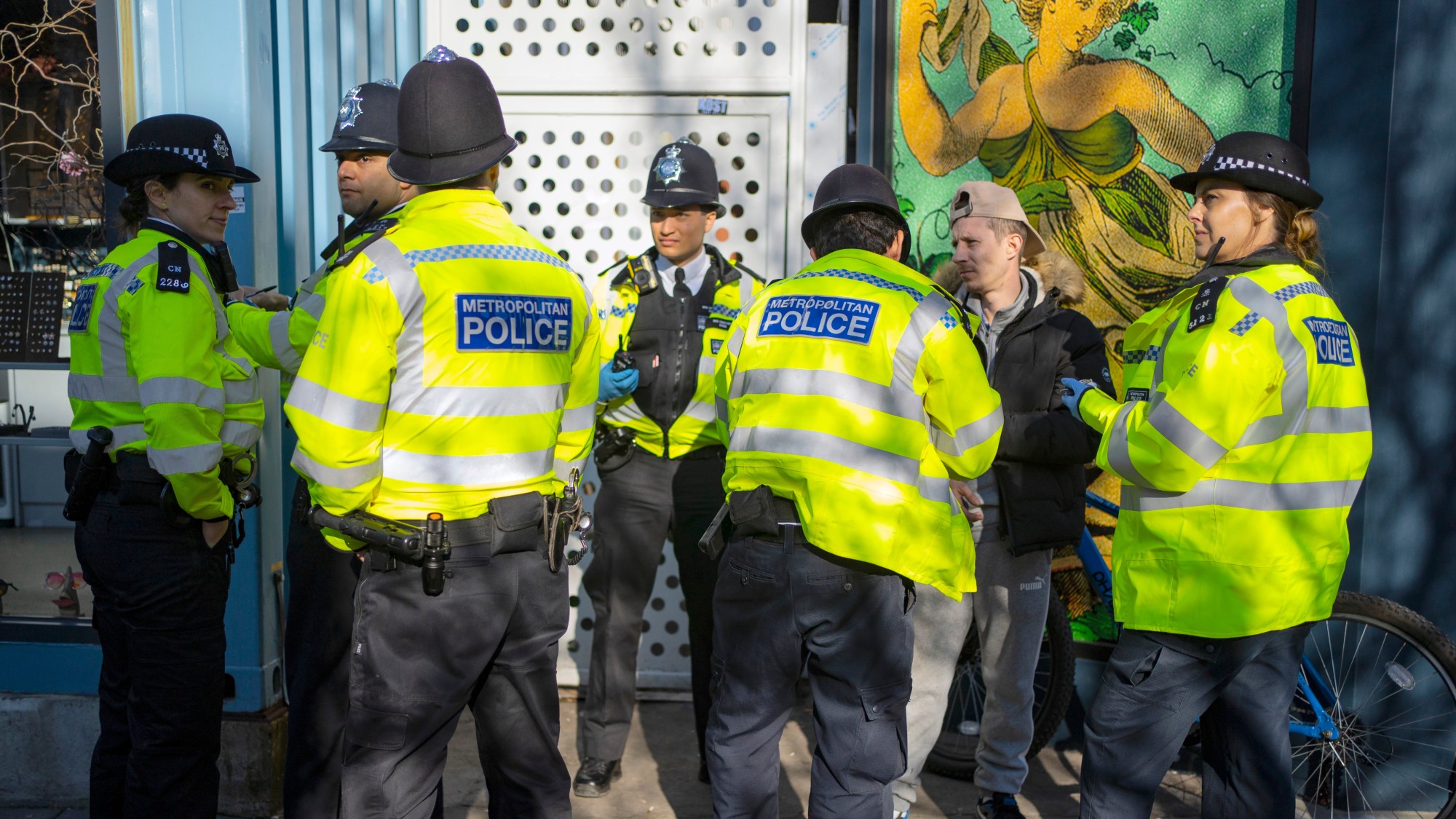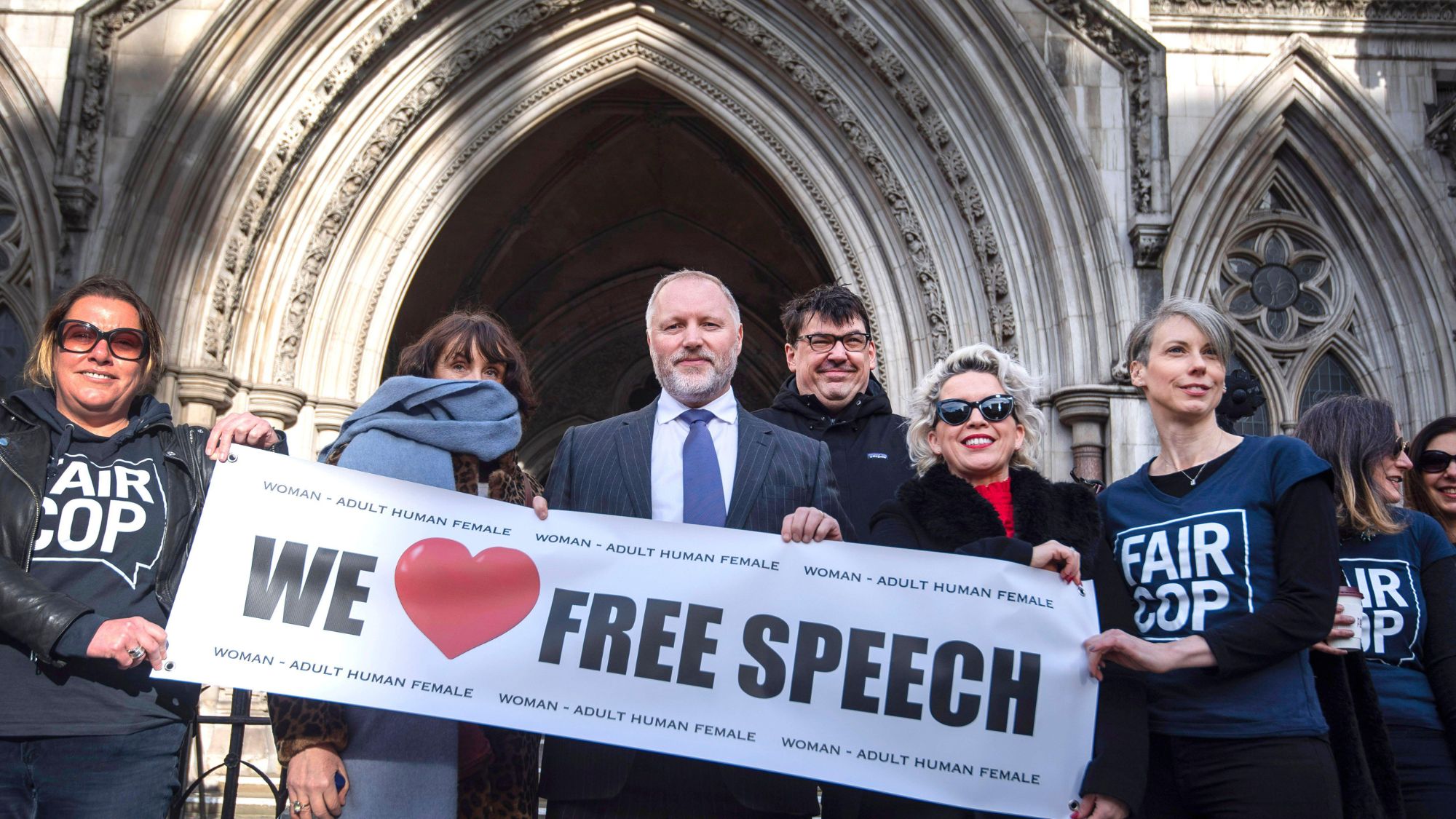The arguments for and against blanket stop and search
Proposals permanently water down the reforms made to Section 60 searches seven years ago

A free daily email with the biggest news stories of the day – and the best features from TheWeek.com
You are now subscribed
Your newsletter sign-up was successful
Boris Johnson is planning to permanently reverse the limits on police stop-and-search powers imposed by his predecessor Theresa May during her time as home secretary.
The prime minister is using “his first day after leaving self-isolation following a positive coronavirus contact to detail his new Beating Crime Plan”, says the London Evening Standard.
The proposals include new unpaid community service schemes for offenders, greater GPS tracking for burglars and a named police officer for residents to contact in every neighbourhood in England and Wales.
The Week
Escape your echo chamber. Get the facts behind the news, plus analysis from multiple perspectives.

Sign up for The Week's Free Newsletters
From our morning news briefing to a weekly Good News Newsletter, get the best of The Week delivered directly to your inbox.
From our morning news briefing to a weekly Good News Newsletter, get the best of The Week delivered directly to your inbox.
But it is the change to stop and search that is “likely to anger campaigners” and “reignite questions about race relations in Britain in the wake of the Black Lives Matter protests last year”, says Bloomberg.
The changes would permanently relax the conditions of a specific type of stop-and-search power, under Section 60 of the Criminal Justice and Public Order Act, whereby police can search an individual without reasonable grounds for a limited time in an authorised area where they anticipate violence involving weapons.
While some believe stop and search is acceptable when there are grounds for suspicion, the use of blanket powers under Section 60 has proven particularly controversial.
Here are some of the arguments made on both sides of the debate.
A free daily email with the biggest news stories of the day – and the best features from TheWeek.com
For
In its Beating Crime Plan, the government argues that stop and search is “one of many vital tools used by the police to tackle serious violence and keep our streets safe”. It claims the powers enabled officers to remove more than 11,000 weapons from the streets and make 74,000 arrests in the last year alone.
“That is why we are making it easier for the police to use stop-and-search powers by permanently relaxing voluntary conditions on Section 60 stop and search, used when the police anticipate serious violence,” it says.
In reality, these conditions have already been “watered down in recent years” as part of a temporary national pilot scheme, says Paul Waugh on HuffPost. The level of authorisation needed to impose Section 60 orders has been reduced, the time period in which the order can take place has been extended and authorising officers only have to anticipate that there “may” be violence rather than “will” be violence.
Johnson now wants to make these reduced checks permanent, which “finally buries” May’s 2014 policy as home secretary to cut the number of stop and searches, says Waugh.
A Home Office spokesperson told him that an assessment of the pilot – which is yet to be published – “gave police officers greater confidence to make use of the power, better reflected the realities and uncertainties officers face on the ground around predicting serious violence, and acted as a deterrent”.
Against
One of the biggest complaints from campaigners about stop and search, particularly the blanket searches under Section 60, is that they “unfairly target minority ethnic groups”, says Bloomberg.
Home Office figures show that, for the year to March 2020, a black person was nine times as likely to be stopped as a white person.
Emmanuelle Andrews, policy and campaigns officer at civil rights group Liberty, told Bloomberg that the new rules would “compound discrimination in Britain and divide communities”. She added: “Many communities, particularly communities of colour, experience overbearing and oppressive policing and the package the government has put forward will only worsen this.”
When the pilot was rolled out in 2019, Labour’s Diane Abbott made a similar argument, warning that while “evidence-based stop and search will always be a vital tool in preventing crime”, random stops under Section 60 “have only poisoned police community relations”, reported Police Professional at the time.
Indeed, in February this year Her Majesty’s Inspectorate of Constabulary and Fire & Rescue Services called on forces to analyse their data and explain to communities why stop and search disproportionately affects ethnic minorities or “risk losing public trust”.
Others argue that blanket Section 60 powers are simply “ineffective”, says The Independent. It notes that today’s announcement comes “two months after the Criminal Justice Alliance (CJA), a network of 160 organisations, launched a super-complaint calling for the power to be repealed”.
The CJA points to government data showing that 99% of searches under Section 60 did not lead to an arrest for weapons in the year ending March 2020. And its own research found that “harmful or ineffective use of stop and search damages trust and confidence and prevents victims and witnesses from cooperating with police”.
-
 El Paso airspace closure tied to FAA-Pentagon standoff
El Paso airspace closure tied to FAA-Pentagon standoffSpeed Read The closure in the Texas border city stemmed from disagreements between the Federal Aviation Administration and Pentagon officials over drone-related tests
-
 Political cartoons for February 12
Political cartoons for February 12Cartoons Thursday's political cartoons include a Pam Bondi performance, Ghislaine Maxwell on tour, and ICE detention facilities
-
 Arcadia: Tom Stoppard’s ‘masterpiece’ makes a ‘triumphant’ return
Arcadia: Tom Stoppard’s ‘masterpiece’ makes a ‘triumphant’ returnThe Week Recommends Carrie Cracknell’s revival at the Old Vic ‘grips like a thriller’
-
 Why have homicide rates reportedly plummeted in the last year?
Why have homicide rates reportedly plummeted in the last year?Today’s Big Question There could be more to the story than politics
-
 How the ‘British FBI’ will work
How the ‘British FBI’ will workThe Explainer New National Police Service to focus on fighting terrorism, fraud and organised crime, freeing up local forces to tackle everyday offences
-
 ‘Stakeknife’: MI5’s man inside the IRA
‘Stakeknife’: MI5’s man inside the IRAThe Explainer Freddie Scappaticci, implicated in 14 murders and 15 abductions during the Troubles, ‘probably cost more lives than he saved’, investigation claims
-
 3 officers killed in Pennsylvania shooting
3 officers killed in Pennsylvania shootingSpeed Read Police did not share the identities of the officers or the slain suspect, nor the motive or the focus of the still-active investigation
-
 Dash: the UK's 'flawed' domestic violence tool
Dash: the UK's 'flawed' domestic violence toolThe Explainer Risk-assessment checklist relied on by police and social services deemed unfit for frontline use
-
 The ethics behind facial recognition vans and policing
The ethics behind facial recognition vans and policingThe Explainer The government is rolling out more live facial recognition technology across England
-
 The Met police's stop and search overhaul
The Met police's stop and search overhaulThe Explainer More than 8,500 Londoners have helped put together a new charter for the controversial practice
-
 NCHIs: the controversy over non-crime hate incidents
NCHIs: the controversy over non-crime hate incidentsThe Explainer Is the policing of non-crime hate incidents an Orwellian outrage or an essential tool of modern law enforcement?